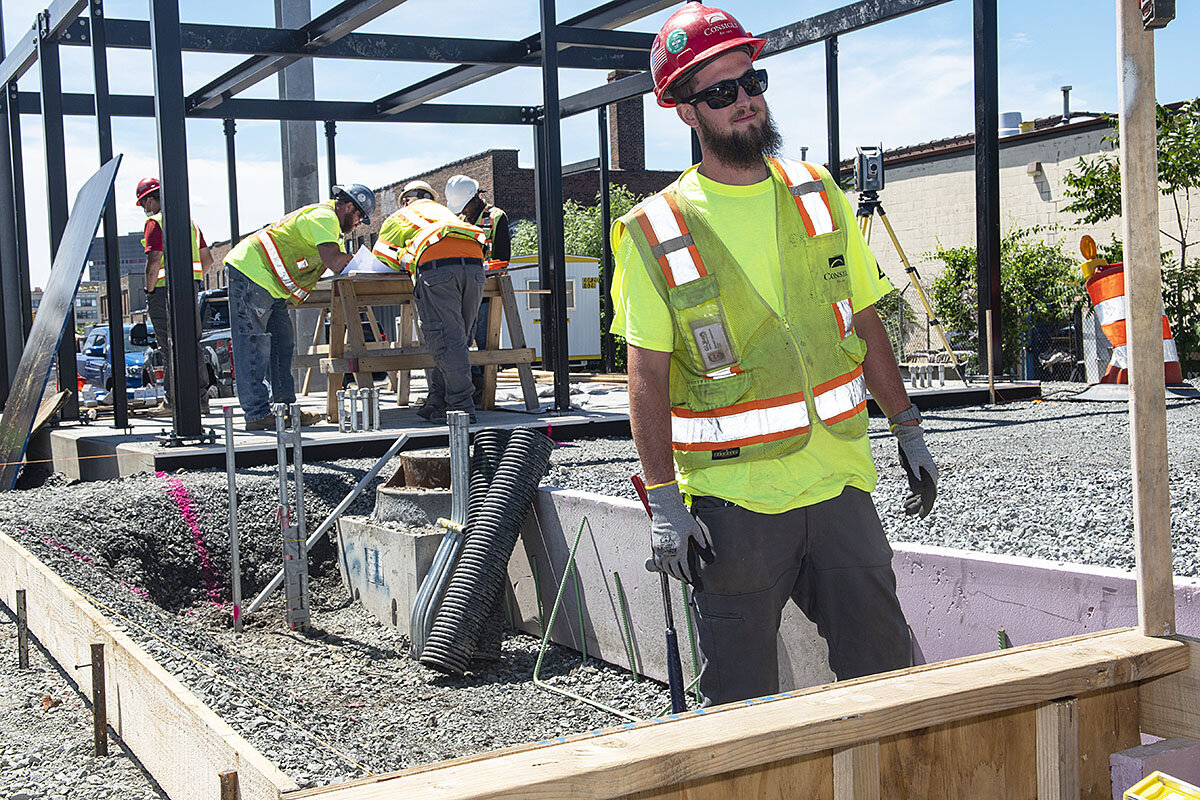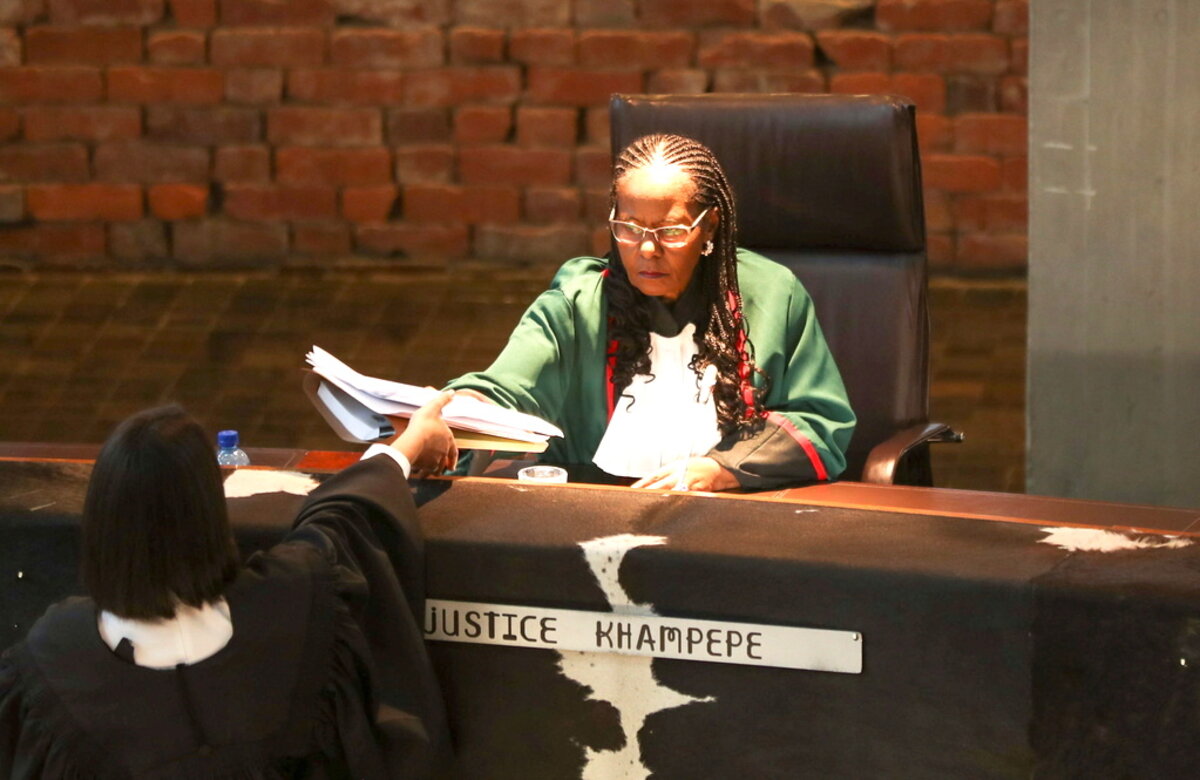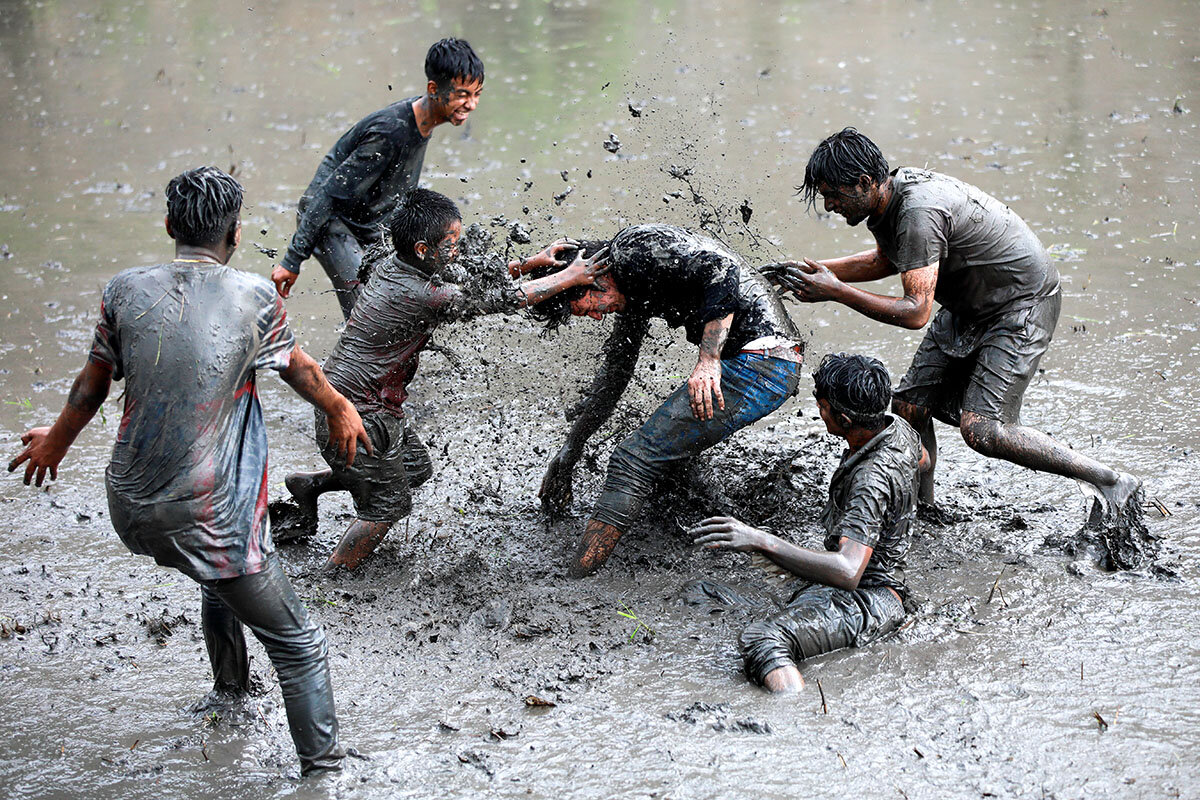How the U.S. rebuilds its roadways, airports, and rails is a major topic in Washington. A tale from a Boston suburb shows why America has fallen behind other nations – and what it needs to fix.
Monitor Daily Podcast
- Follow us:
- Apple Podcasts
- Spotify
- RSS Feed
- Download
 Laurent Belsie
Laurent Belsie
Even when he’s not playing in the NBA finals, superstar LeBron James draws attention. And next month, his new movie – “Space Jam: A New Legacy” – comes out.
Less noticed is another milestone: 10 years ago the LeBron James Family Foundation offered free laptops and bicycles to more than 300 third graders in Akron, Ohio, the beginning of a commitment that has blossomed into the “I Promise” program for kids with low reading scores. This month, 169 of the original 327 students graduated from high school, and a third of the graduates, according to the Akron Beacon Journal, are headed to college.
OK. Local hero gives back to hometown is not a new idea. Are there deeper lessons here? One is that resources matter. The “I Promise” program and its partners are helping families with everything from food to housing for homeless students and education for parents. Partners Kent State University and the University of Akron are offering four years of free tuition to graduates of the program.
Another lesson is that resources aren’t enough. Students and parents (and Mr. James) make promises to each other and renew them daily. While parents pledge to be good role models and hold their children accountable, students promise to listen to their teachers, eat right and be active, and dream big. The program’s mottos? “We are family” and “Everything is earned, nothing is given.”
Jamil Wright, an “I Promise” student, used to write cards to Mr. James, like “Merry Christmas” or “Congratulations on a good game.” According to the Beacon Journal, he once asked the superstar if he got his cards or read them. Mr. James responded by quoting a recent one.
Call it respect, commitment, or love. That, too, is making a difference in Akron.










